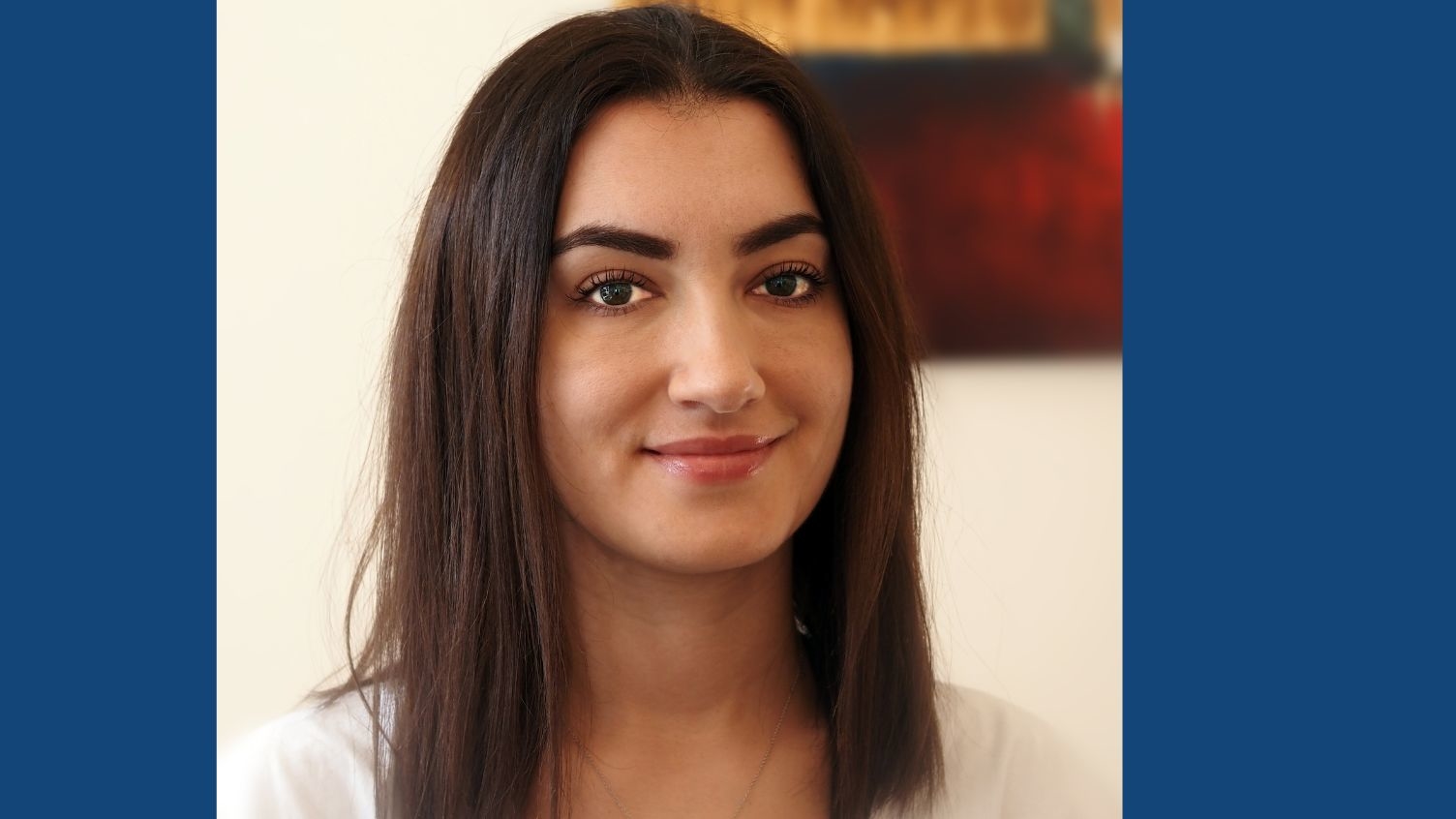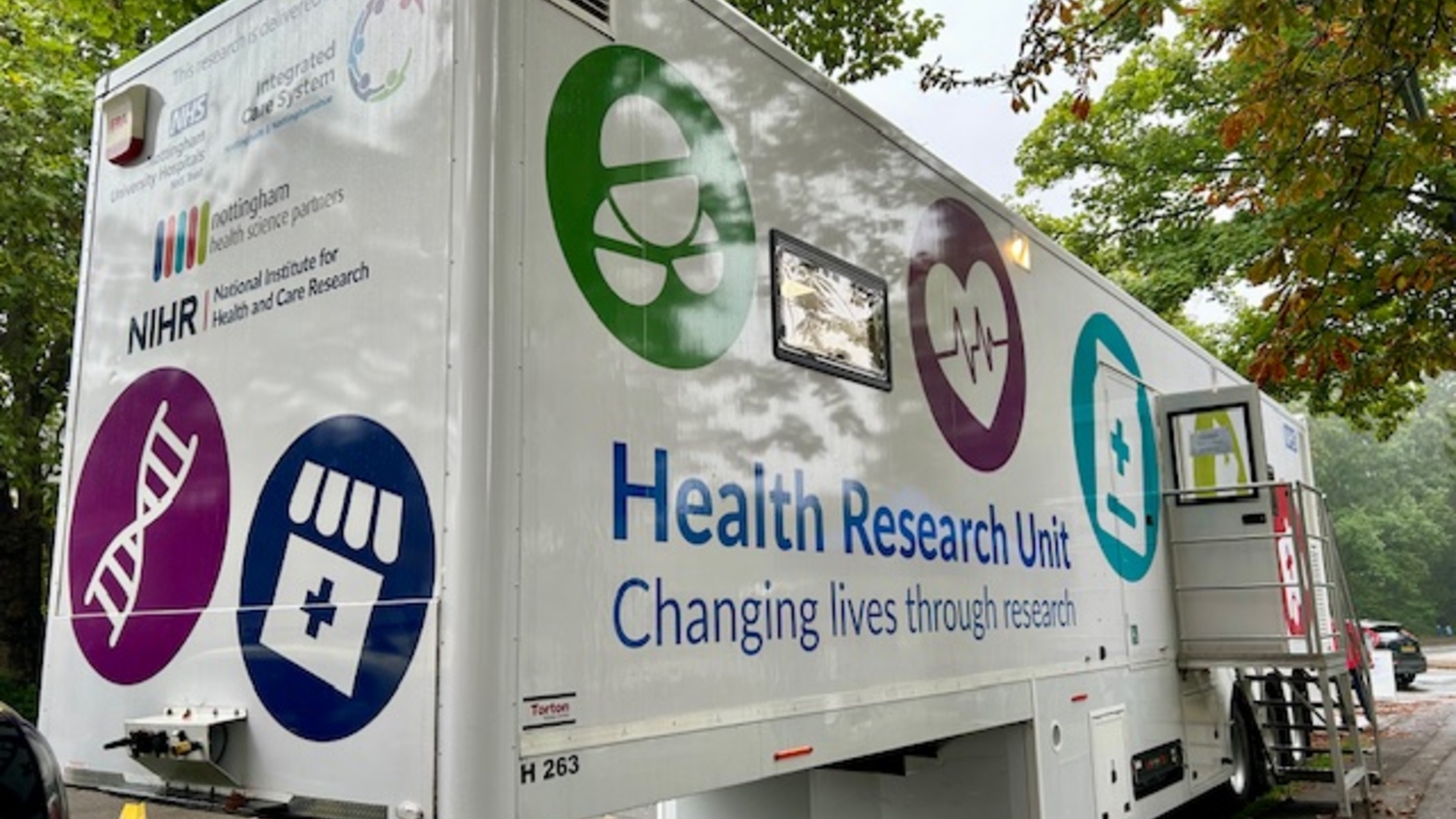"I believe the research I'm doing has the potential to make a measurable difference to people's outcomes" — occupational therapist
- 09 October 2023
- 5 min read
Jennifer Crow shares the story of her career as an occupational therapist specialising in stroke research.
Jennifer Crow
We're putting a spotlight on nurses, midwives and allied health professionals (AHPs) in research. In this piece, Jennifer Crow, Health Education England / NIHR Clinical Doctoral Research Fellow at Imperial College London, shares the story of her career as an occupational therapist specialising in stroke research.
How did you first get involved in research?
I've been a clinician for a long time — for more than 30 years — and specifically working with people who've had strokes for more than 20 of those 30 years. My research journey actually started with small service improvement projects on the ward at Imperial College Healthcare NHS Trust, which came out of questions I was asking about how we were doing things and whether we could be doing them in a better way.
And also at Imperial, we're very fortunate to have a lead clinical academic for AHPs who is really trying to drive the AHP research agenda within the hospital. We have a lot of opportunities to develop research skills, so even when working clinically I was able to improve skills like searching literature.
I was supported to apply for an NIHR pre-doctoral fellowship, which I was awarded, and this was definitely, in my case, an essential stepping stone to winning the fellowship for the PhD.
But my research journey definitely started with clinical questions whilst working on the wards.
What has been the highlight of your research career so far?
Well I'm trying to do public engagement work with diverse communities because stroke disproportionately affects people of certain ethnic groups and people who have experienced socioeconomic deprivation. Through outreach work being done by the NIHR Imperial BRC Patient Experience Research Centre I was involved in a brilliant public engagement event in one of the boroughs in north west London that has no stroke services whatsoever.
I met the head of the patient participation group for a local GP surgery, as well as the chair of the Patient Participation Network for the entire borough, and off the back of that we're now meeting with other key stakeholders in the area. For the first time I think this might lead to some improvements in services that people are able to access.
It's a massive highlight for me. This particular engagement work looks like it's going to lead to change quite quickly, so I'm absolutely delighted and excited by that. Usually these things take a lot longer.
Another recent highlight is that I've received the Imperial College's Department of Brain Sciences Reward and Recognition Award for public engagement. This is for the work I'm doing to ensure the voice of under-represented communities are included in my research. It's a challenging area but it's an area that I find really rewarding. And if I can make some strides in that area and encourage more engagement from a diverse group then that would be brilliant.
“...you need to be curious, and you need to question what you're doing and the best way of doing things.”
What skills do you think are needed for a career in research?
So as a clinician I think you really have to be prepared to go above and beyond the day job to get yourself to a point where you're able to compete for research fellowships. So I think you need to be someone who's willing to put in the extra hours and the extra effort.
I think you need to be curious, and you need to question what you're doing and the best way of doing things. You need to be self-motivated and disciplined — that's really essential. You need to be resilient and open to feedback, so not taking those things personally.
Also listening skills. You need to be willing to listen to people and set aside your own agenda. Be willing to take advice and guidance from people who are more experienced than you and don't assume that you know best.
Why do you believe research is important?
Research is essential to enable us to improve the care we provide. I'm an occupational therapist but I think it applies to a lot of therapy interventions — we still lack a solid evidence base for many of the things we do. We need to prioritise this for the people we are working with. To receive funding to initiate changes we need the evidence. Ultimately it's about improving care and outcomes.
“I want to remain linked and grounded in the clinical environment.”
What are your plans and ambitions for the future?
So I guess my first plan is to finish my PhD. I only started in September last year so I'm not even one year in yet. But while I'm doing that, I'm also really interested in building collaborations with other researchers.
I've become part of an international collaboration and we are working on a systematic review together. I'd like to pursue more collaborations like that. I think it's a great way of learning for myself and understanding how people do it in other countries.
I also want to be a role model for occupational therapists, because I think among the AHP groups in research occupational therapists can be better represented. I'd like people to see that a clinical academic pathway is achievable and we have value to add.
But I suppose my biggest ambition is to conduct research where the participants represent the demographic of the people I'm doing the research about. This is the long game. There are a lot of barriers and challenges but I'd like to play a part in improving it.
Another ambition of mine is to never grow tired of keeping in touch clinically with the people who've had strokes and their families. I think that being grounded in a clinical service leads to well-informed and pragmatic research. I believe the research I'm doing has the potential to make a measurable difference to people's outcomes. I want to remain linked and grounded in the clinical environment.
Find out more
- More career stories and additional resources
- Your Path in Research — NIHR resources to support research careers


